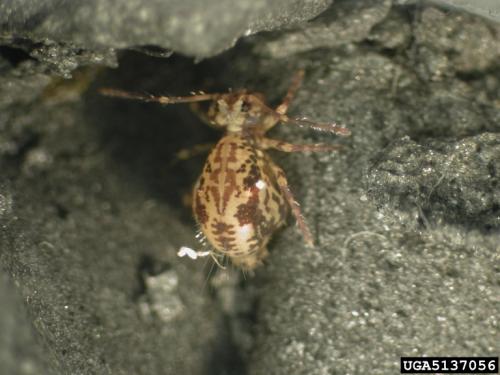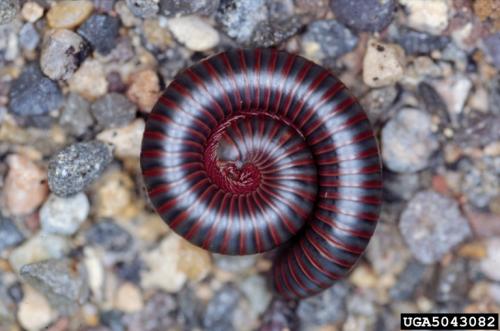Decomposition, the breakdown of organic materials, is carried out by a wide variety of organisms in the soil. Many arthropod species feed on dead or decaying plants and animals, or on the microorganisms that occur in and on these materials. Many of these very small microarthropods go unnoticed, but they play an important role in the cycling of nutrients in the soil. Arthropods that are active in the decomposition food web are called decomposers, detritivores, detritus feeders, microbivores, or saprophages. Decomposers contribute to the cycling of nutrients in the soil in several ways. They obtain nutrients by consuming microorganisms, dead and dying plant residues, animal waste (including the waste of soil arthropods) and dead animals. They contribute nutrients to the soil in the form of their waste products and their bodies when they die and are subject to decomposition. Some common arthropods that play an active role in decomposition in agricultural systems are millipedes, springtails, mites, fly larvae, and burying beetles. In addition to helping to break down organic matter, decomposers are often eaten by other arthropods, for example spiders, and can contribute to supporting populations of beneficial predatory arthropods.

 Figure 1.(top) A springtail, Ptenothrix renateae. Springtails are active in the decomposition food web in the soil. Photo credit: Ernest C. Bernard, University of Tennessee, Bugwood.org. Figure 2.(below) A millipede. Millipedes are active in decomposer food webs. Photo credit: Joseph O'Brien, USDA Forest Service, Bugwood.org
Figure 1.(top) A springtail, Ptenothrix renateae. Springtails are active in the decomposition food web in the soil. Photo credit: Ernest C. Bernard, University of Tennessee, Bugwood.org. Figure 2.(below) A millipede. Millipedes are active in decomposer food webs. Photo credit: Joseph O'Brien, USDA Forest Service, Bugwood.org








0 komentar:
Posting Komentar